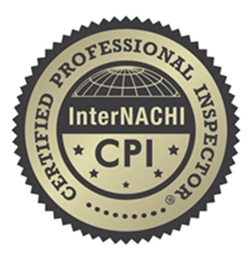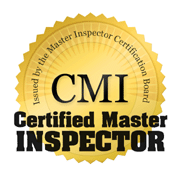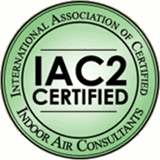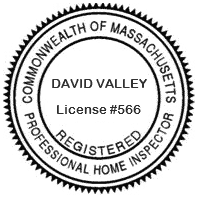Massachusetts Home Inspections YOUR INVESTMENT IS MY CONCERN

Frequently Asked Questions

I walked through the house, it looks fine. Why should I get a home inspection?
Buying a home is one of the most significant and expensive investments you'll ever make. Unlike most purchases, there’s no money-back guarantee or return policy if you’re not satisfied. Once you own a home, you’re responsible for its maintenance, repairs, and unforeseen issues. That’s why it’s crucial to identify potential problems before committing to a purchase.
As a homebuyer in Massachusetts, you want to ensure you're making a sound investment. A professional home inspection is an invaluable tool in this process. I will conduct a thorough visual inspection of the property, identifying components that are not functioning properly, items beyond their useful life, and any safety concerns. Additionally, I’ll highlight areas that may require immediate repairs or have a history of issues.
If you're a homeowner preparing to sell, a pre-listing inspection can help you address potential concerns before putting your house on the market. This proactive approach allows you to make necessary repairs, improving your home’s appeal to buyers and reducing the likelihood of surprises during the buyer’s inspection. Let me help you enhance your home’s marketability and provide you with a clear understanding of its condition before listing it for sale.
Can I do the Home Inspection myself?
If you choose to inspect the home yourself, that’s certainly an option. However, keep in mind that a thorough inspection requires specialized knowledge and experience. You’ll need to safely open the electrical service panel to identify any wiring violations. You must also walk the roof to assess the condition of roofing materials, flashing, and drainage while noting any defects or improper installations. Evaluating plumbing fixtures, supply lines, waste lines, and gas piping for operational condition and compliance with building standards is essential.
Additionally, you’ll need to inspect the heating system for functionality and identify a wide range of potential safety hazards. Crawling through the attic and under the building is necessary to uncover hidden construction defects. Recognizing hazardous materials such as asbestos is another crucial aspect of the inspection. In reality, the list of potential issues is extensive and could easily fill a book.
A home inspection is an investigative process requiring a trained eye, careful observation, and an understanding of how different issues may be related. It involves making judgments on the severity of defects, recommending corrective actions, advising further evaluations when necessary, and assessing risks to life and property.
With years of experience, I can identify defects in all types of homes—modern and historic alike. When purchasing a home, it’s always best to rely on a qualified, experienced home inspector like myself. You'll gain peace of mind knowing that your investment is thoroughly evaluated.
The house is newly constructed, and was just inspected by the municipal inspector. Shouldn't this inspection be adequate?
No home—no matter how well-built—is free of defects. With a project as large and complex as a house, errors are inevitable at various stages of construction. Over my years of inspecting homes, I’ve found that even newly built houses contain defects, regardless of the builder’s skill or integrity. Simply put, human imperfection makes a flawless home impossible.
The assumption that "new" means "perfect" can lead to costly mistakes. Consider any department store's return counter—it’s clear that even factory-made products have defects. When applied to home construction, this reality is even more significant, as the stakes are much higher.
Many homebuyers believe a professional home inspection isn’t necessary because municipal building inspectors have already evaluated the property. However, a municipal inspection is not the same as a home inspection performed on behalf of a buyer.
THE KEY DIFFERENCES: MUNICIPAL VS. PROFESSIONAL HOME INSPECTIONS
Municipal building inspectors often assess 12-15 homes per day, focusing primarily on code compliance rather than construction quality. Their job is to ensure a home meets minimum code standards—not to evaluate workmanship. While they may flag major structural violations or improper drain connections, they aren’t concerned with issues such as:
-
Poorly fitted doors
-
Subpar installation of components
-
Unprofessional wiring
-
Construction debris inside heating ducts
-
Uneven countertops or sloppy finish work
-
Get up close to roof shingles
-
Pay attention to detail in finish work
Additionally, municipal inspectors rarely enter attics or crawlspaces, areas where significant construction defects can hide. Their inspections typically occur before utilities are turned on, meaning they cannot test:
-
Electrical outlets for proper grounding and polarity
-
GFCI or AFCI breakers for functionality
-
Plumbing fixtures like sinks, showers, tubs, and dishwashers
-
Gas appliances such as furnaces, fireplaces, and water heaters
They arrive at the job site with a clipboard and code book—not a ladder, advanced tools, or the time to investigate every detail. As one municipal inspector once stated: “What we do is a cursory inspection. We do not check everything. That is not our job. We don’t even warrant the work. We’re looking for the big stuff.”
But here’s the problem—how can they reliably identify "the big stuff" with just a cursory inspection?
THE REALITY OF NEW HOME CONSTRUCTION
Anyone who has worked in construction knows that mistakes and shortcuts happen—even in well-built homes. Workers have off days, materials can be defective, details get overlooked, and components may be improperly installed or omitted altogether. Municipal inspectors, overwhelmed with their workload, often miss critical issues that could lead to expensive repairs down the line.
THE IMPORTANCE OF A PROFESSIONAL HOME INSPECTION
A new home inspection ensures you’re making a sound investment. I’ve never inspected a newly constructed home that was completely flawless. Your home inspection report will always highlight items that need attention—because no home is perfect.
Skipping a professional home inspection on a new build is a risk that could cost you thousands in hidden repairs. If you choose to waive your home inspection, I genuinely wish you the best of luck. But from what I see daily in the field, I strongly advise against it. Massachusetts Home Inspections will uncover shoddy construction, faulty installations, and potential safety hazards. I’ll provide you with a detailed, same-day inspection report so you can move forward with confidence.
What does a home inspection include?
I will thoroughly inspect everything that makes up the House. Over 400 items are inspected throughout your property to include the following...
Electrical - All accessible wiring from the Street to the interior Receptacles
Roof, Trim, Roof Vents and Proper Flashing's
Gutters and Exterior Drainage
Driveways, Walkways and Grading
Chimney, Dormers & Skylights
Siding, Windows and Exterior Flashing's
Garage Doors, Sensors and Openers
Decks, Stoops, Porches and Patios
Interior Walls, Floors and Ceilings
Plumbing - Waste and Supply Piping
Kitchen and Bath Fixtures
Windows, Doors and Locks
Structure, Foundation and Framing
Heating and Air Conditioning Components
Water Heating System
Water, Gas and Electrical Shut-offs
Fireplace, Damper, Visible Flues and Hearth
Attic Insulation, Ventilation and Active Leaks
Basement and/or Crawlspace
Accessible Sump Pump floats
All Safety Concerns will be addressed immediately
See Massachusetts Home Inspector Standards Of Practice for a complete list of the systems covered in a home inspection.
Should I be there at the home inspection?
Absolutely. It's not required, but it is very much to your advantage to be present from start to finish. It's a lot easier for me to explain a home when you (the Buyer) are actually there on site! If you cannot make it, then please have someone you know on site to represent you, so that I can explain the property and go over any items and details that may need your attention.
I'll slowly walk you through your prospective home and help you understand the house while I provide you with a wealth of knowledge that's hard to acquire any other way. I'll be talking to you through the entire home inspection. After walking you through the home, you'll be able to understand my inspection report more clearly, and know exactly which areas need your immediate attention. Being at the home inspection also alleviates any surprises that you may run into later on if you were not there during my walk-through. Additionally, I can give you all the answers to your questions, tips on home maintenance, and a lot of general information that will assist you when you move into your new home. Most important, you'll see the home through the eyes of an objective third party.
Who else will attend the home inspection?
Several factors influence who attends a home inspection, but ultimately, as the Buyer, you have the final say. Since you’ve hired me as your private consultant, your preferences should take precedence.
Typically, your real estate agent coordinates attendance, though circumstances may sometimes dictate otherwise. If you’re unable to attend—perhaps due to work commitments or because you live out of the area—your Buyer’s agent or a representative may accompany me on your behalf. Meanwhile, the Seller’s agent typically provides access to the home, along with any relevant documents such as the Seller’s disclosure or listing sheet, before stepping aside for the duration of the inspection.
In most cases, Buyers attend all or part of the inspection, sometimes with their agent, a contractor, or a few trusted friends or family members. However, I encourage you to limit the number of attendees so I can maintain your full attention while walking you through the property’s key findings.
SHOULD THE SELLER BE PRESENT?
This is a more complex question. While Buyers cannot forbid Sellers from staying in their own home during the inspection, it’s common practice for agents to politely ask them to leave for a few hours. Some Sellers readily comply, while others choose to remain—either staying out of the way or actively engaging with Buyers and following the inspection closely.
In my experience, having the Seller present can create unnecessary tension and distractions. I’ve had Buyers feel uncomfortable or frustrated when Sellers remained in the home, which is why I prefer they leave during the inspection. Keeping the process smooth and conflict-free benefits everyone involved.
Many real estate agents try to limit direct interaction between Buyers and Sellers during the inspection to avoid emotional exchanges that could jeopardize the sale. However, in some cases, open communication fosters goodwill and transparency. Whether this is beneficial depends on the individuals involved rather than a set protocol.
While reviewing my findings with my client, I typically recommend a private consultation, without the Seller present. Most Sellers instinctively understand this and offer us a quiet space—often the kitchen—for discussion.
THE IMPORTANCE OF BUYER PRESENCE
One of the worst arrangements occurs when a Buyer’s agent discourages their client from attending the inspection and acts as an intermediary. Agents who do this are not serving their client’s best interests. I will not conduct an inspection solely with a Buyer’s agent unless explicitly authorized by the Buyer.
YOUR INSPECTION, YOUR ADVOCATE
As a Buyer, you’ve hired me to be your advocate. This inspection is for your benefit, and my commitment is to provide you with a thorough, unbiased assessment of the home. I have built my reputation on integrity and attention to detail, and I will not allow outside parties to dictate how my inspections are conducted.
When is the best time to schedule a home inspection?
The ideal time to schedule a home inspection is immediately after signing the offer to purchase contract but before finalizing the purchase and sales agreement. However, before signing the offer, ensure that your Realtor includes an inspection contingency clause in the contract. This clause should clearly outline the Buyer’s and Seller’s obligations and make the purchase contingent on the findings of a professional home inspection. This protects you by allowing room for negotiations or withdrawal if significant issues are discovered.
How long will the home inspection take?
The duration of a home inspection varies based on the size and condition of the property. For most single-family homes under 2,000 square feet, my home inspections typically take around three hours. Larger homes, multi-family properties, or homes in poor condition may require additional time. For small condominiums, inspections generally take 1.5 to 2 hours, depending on the condition of both the unit and the building.
What if the report reveals problems?
No home is perfect, and every property will have some defects. The primary purpose of a home inspection report is to provide you with detailed information about the home's condition, highlighting any major issues before you finalize your purchase. It’s important to understand that an inspection report is not a mandatory repair list for the Seller. Sellers are not legally or contractually required to provide a flawless home—most repairs are negotiable between the Buyer and Seller.
Buyers often request repairs before closing, and while Sellers may agree to some, most fixes are made as a matter of choice, not obligation. Sellers can decline repair requests unless they are required by state law, local ordinance, or stipulated in the purchase contract. Most contracts require that safety concerns be addressed, all fixtures function properly, windows remain intact, and there are no active leaks in the roof or plumbing.
Before making repair requests, focus on significant issues—those that affect health, safety, structural integrity, or involve active leaks. Sellers are more likely to address major concerns, such as roof defects, structural issues, electrical hazards, plumbing issues, and critical systems like the furnace and water heater.
Finally, remember that your inspection report does not determine whether the home is a good value—it simply presents an objective assessment of its current condition. Work closely with your Realtor to develop a reasonable repair request list to discuss with the Seller.
What's the difference between a Home Appraiser and a Home Inspector?
Home appraisers and home inspectors serve distinct roles, and it's important to understand the difference. Appraisers are trained to evaluate the market value of a property, while home inspectors assess its physical condition.
Unlike home inspectors, appraisers typically do not climb on the roof, remove electrical panel covers, evaluate structural components or examine the furnace and appliances in detail. Home inspectors are trained to evaluate all aspects of a home’s construction, reviewing it as a system—analyzing how different components interact and how one issue might affect another.
While both professionals play a crucial role in the home-buying process, appraisers focus on valuation, whereas home inspectors provide an in-depth analysis of the home’s structure, systems, and overall condition.
Will I be able to walk through the property again before closing?
Before closing escrow, you will typically have the opportunity to conduct a final walkthrough of the home. This is your chance to verify that any agreed-upon repairs from the initial home inspection have been completed.
During this walkthrough, carefully inspect the walls, ceilings, and other areas where the Seller may have removed window treatments, pictures, or attached furnishings. If you discover any unexpected damage or incomplete repairs, bring these issues up before closing. It is the Seller’s responsibility to address them prior to finalizing the sale.
What shall I do to prepare for the home inspection?
As the Buyer, you (or your real estate agent) must obtain permission for me to access the property for the home inspection. It’s also important to ensure that all utilities are turned on and gas pilots are lit before the inspection, as this allows for a full evaluation of the home's systems.
I will be inspecting all areas of the home, including the attic, basement, garage, and mechanical systems. To complete a thorough inspection, I must have unobstructed access to these areas. If stored items or other obstacles prevent me from inspecting certain components, those areas will be marked as “Not Inspected” in my report. This could leave you with unexpected issues once access is finally available.
When is payment expected?
Payment is due at the conclusion of your home inspection. I accept cash, check, money order, Venmo, Cash App, Zelle or PayPal. Credit cards are accepted but due to today's ridiculous bank fees an additional 2.9% will be added on top of my inspection fee.
What additional services do you provide?
Please see... OPTIONAL SERVICES
What if I have questions after my home inspection is complete?
If you have any last-minute questions after your home inspection, feel free to contact me directly. My phone line will be answered from 8:00 AM to 9:00 PM. I am available to answer your questions for as long as you own your home, providing you with the personal service and attention you deserve as a homeowner.
How do I find a competent home inspector?
When choosing a Massachusetts home inspector, the most important factors to consider are their qualifications, including experience, training, certifications, and professional affiliations. Be cautious when selecting an inspector, as there are some who are not licensed or lack certifications. A great way to find a reliable inspector is through recommendations from friends or business acquaintances who have been satisfied with a home inspector they've used in the past. You can also find local inspectors online, where many home inspectors advertise under terms like "Massachusetts Home Inspections" or "Massachusetts Home Inspector". Real estate buyer agents are also often familiar with reputable home inspectors and can provide you with a list of options to consider.
Be sure to read Home Inspector Facts For Consumers to better understand the process. Regardless of your referral source, it's essential to confirm that the inspector is a Member of (InterNACHI) the International Association of Certified Home Inspectors. This ensures that they meet professional standards for qualifications, experience, and business ethics.
Should I include an inspection contingency in my offer?
An inspection contingency protects you, the Buyer, by allowing you to cancel the deal if significant issues are found during the home inspection. Once the Seller accepts your written offer, the purchase agreement becomes a legally binding contract. This contract can include a contingency for any repairs or other necessary actions the Seller must address before closing escrow. If these issues aren’t resolved, and you have a contingency clause, you can delay or even cancel the closing. Without such a clause, you risk losing your deposit and could face legal consequences for backing out of the contract.
You have the right to choose your own home inspector and are responsible for paying for the inspection. In addition to an overall structural inspection, you can request specialized reports such as wood-boring insect inspections, roof inspections, water testing or checks for potential environmental hazards like asbestos or radon gas—services I also offer as options.
Contingency clauses should address the concerns of both the Buyer and the Seller. Buyers can also protect themselves by adding additional contingencies, such as specifying which items (e.g., curtains or appliances) are to remain with the house. Additionally, ensure you include a provision giving you the right to personally inspect the home 24 hours before closing to confirm everything is in order.
I'm looking for a thorough inspection, how do I know you qualify?
BENEFITS OF HIRING MASSACHUSETTS HOME INSPECTIONS
What does a home inspection cost?
Rates for home inspections can vary depending on the square footage of the home and any optional services you may request. However, beware! Choosing a home inspector based on price alone is like gambling with your money and your home. Inspectors who charge lower rates often do so because they either lack satisfied customers who will refer them, or they are new to the industry. Inexperienced inspectors, or those charging below the industry standard, typically do less, know less, and therefore charge less. Why anyone would risk their dream home over a mere $25 to $50 price difference is beyond me. The knowledge gained from my thorough inspection, the detailed report, and my 64-page "Know Your Home" manual will be the best investment you make in your new home.
Avoid price shopping. Lower inspection fees should be approached with caution, as they often indicate a new or less-experienced inspector who may not dedicate enough time or attention to your inspection. A home is one of the most expensive purchases you will ever make, and one missed defect could cost you 100 times what you save by opting for a cheaper inspection.
Think about it: How many homes does the average person buy in a lifetime? Maybe three or four? How often? Once a decade? Would you visit a dentist who fills just one tooth a decade? Or trust a heart surgeon who performs only one surgery a decade? Of course not. The same principle applies when selecting your home inspector. It’s best to ask your Realtor for guidance in choosing a qualified inspector. Ask them what questions you should be asking to ensure you're hiring someone experienced and reliable.
The real question you should be asking your home inspector is, "How much money will you save me?" A good home inspector won’t cost you money; they’ll save you money by uncovering issues before they become costly repairs. The best way to price shop is to focus on quality, and that’s exactly what you’ll get with Massachusetts Home Inspections. Call me today to make the smartest choice for your new home.
Important information for Home Buyers...
Home Inspector Facts For Consumers
Here is what my clients have to say about my home inspection services:
Press F5 (on your keyboard) for additional testimonials
As a first time home buyer, a home inspection was very intimidating. Dave Valley made me feel at ease as soon as I met him. He was very professional, thorough, and explained things to me as we went along. Overall, what I expected to be a stressful experience was very easy because of Dave.
Christine














